|
I had a really busy week zig zagging across Perth & Kinross and Dundee, before heading south to the Scottish Borders for a visit with Abundant Borders at Eyemouth Allotments and Community Garden and Peelham Farm, Foulden, Berwckshire. Rachael Hamilton MSP joined me for both visits (including a tasty lunch at Odlos in Eyemouth) and we had a really interesting day visiting the sites and discussing pertinent agri-food related issues facing the Scottish Borders and the Good Food Nation Bill. Starting in Eyemouth on a chilly and slightly damp early March morning, we met by Karen Birch (Chief Officer of Abundant Borders) Carol Cooke from the Scottish Borders Council (responsible for green spaces) and 3 of the local Eyemouth Community Garden volunteers. Abundant Borders is a local 3rd sector organisation that are developing a network of community gardens throughout the Scottish Borders. Currently they have 5 community gardens and are in the process of developing an expanded community garden at Eyemouth after recently getting access to, and permission to develop, a piece of land adjacent to the current Eyemouth Allotment site (on which the current small community garden is collocated). Through funding from multiple organisations (private, public and lottery), Abundant Borders is able to provide essential practical, project management, legal, skills development and volunteer management support to the community gardens helping to develop, and embed, them within each local community. Each community garden is supported by a team of local volunteers who are entitled to harvest produce from the garden in exchange for their time and skills and work! Any additional produce not taken by the volunteers is distributed to local food larders to help them with their provision of fresh fruit and vegetables. Getting the opportunity to speak directly to the Eyemouth volunteers highlighted just how important and beneficial their community garden is for them. It is helping them to settle into a new community, giving them accessing to land to grow food, helping with physical and mental health issues, providing a space for positive social interaction and solitude and helping them to address their own food insecurity challenges (caused by long Covid). An interesting issue raised was how the statutory requirement to develop a Scottish Border Council food growing strategy (via the Community Empowerment Act 2015) has helped to drive forward and accelerate food growing in this local authority and that as a result there is now more resource and commitment to expanding the network further. There is also a wider recognition within the council and across the local NHS Trust and Health and Social Care partnership of multiple benefits delivered by such community gardens. The 2nd stop of the day was to visit Denise, Chris and Angus Walton on Peelham Farm. Denise and Chris were new entrants into farming in 1990 starting with a 20 acre smallholding. They grew along the way, acquiring Peelham farm and are now working 650 acres. They choose to develop an organic, pasture for life, high welfare animal production system that delivers high welfare, high nutrient value meat from their cattle, pigs and sheep and reducing significantly their dependency on costly inputs. They also invested in on site butchery and charcuterie facilities to process all their own meat and now have a burgeoning retail operation with a mix of online, farm market and independent retailer (locavore and Abel and Cole) sales. Whilst sales grew during COVID (and they have maintained about 15% of that growth), they have battled with delivery challenges throughout and are currently evaluating a range of solutions to ensure more consistent and affordable delivery for their online sales. They have strong relationships with other organic pasture for life farms in Scotland from whom they buy calves, ewes (for mutton who have finished their reproductive life) and sows (finished their reproductive life and are ideal for charcuterie) and share transport to and from the abattoir they use in Co Durham. Angus, their son, joined the farm partnership in 2015 and is now the principal farm manager who lives on the farm with his wife and 2 children (the next generation!). They have 1 onsite windfarm and smart grid system generating most of the energy requirements for the butchery and charcuterie. They provide onsite craft butchery apprenticeships and currently employ 7 people across the butchery, charcuterie and office. They noted that affordable housing and local transport is a continuing problem for their employees with most having to live in Berwick upon Tweed. They run monthly craft butchery courses for the public and provide mentoring to other farmers looking to transition to more sustainable, less input dependent systems of production. They are active in local, regional, national and international discussions and debates about farming and in particular organic, pasture fed farming and work with many organisations to research and promote the benefits (nutritional; environmental; animal welfare; land (incl. soil), net zero; economic) of organic, pasture fed farming. Spending time on the farm and talking to the Waltons really brought home to me how quickly farms can transition to a low input, more sustainable, high welfare model whilst also remaining economically viable. Of the farms they have recently supported, the transition has taken approximately 4 years and given rising input costs and uncertainty of supply of inputs (feed and fertilisers) there is increasing interest from farmers in such a transition. It really made me think about how transforming the way we farm in Scotland (especially animals) doesn’t need to take a generation. Instead it needs public support farmers through the transitional period and for accessing markets (including public food supply chains) for the high nutrient value, high welfare products being produced. As discussed in other places, Peelham also suffers from a lack of local abattoir services with their animals having to travel to Co Durham (in the North East of England) for slaughter. Investment in local abattoir facilities, certified for organic and capable of handling a range of animals, would be transformational for theirs and other regional farming businesses.
0 Comments
Dispatches from Perth, Kinross and Dundee City
After a short weekend pitstop in Edinburgh to recover from the long, beautiful journey back from Islay, I hit the road again visiting 5 sites across Perth and Kinross and Dundee City. They varied from a large waste management site in Perthshire (Binn Eco Park in Glenfarg, Perthshire), to Tomnha’s Market Garden near Comrie (Tomnha is on Comrie Croft, Perthshire), the Kinross Day Care Centre (supports older people), Broke not Broken (an antipoverty charity and food bank in Kinross), Food Train Dundee (charity that provides shopping and other services to older people who live independently) and the MAXwell Centre (community centre) in Hilltown, Dundee. Jim Fairlie MSP joined me for the visit to Binn Eco Park. Throughout the visits and our onsite discussions, a number of common issues/insights emerged despite the differing nature of the sites visited):
Whilst the organisations visited have some of these in place, the funding that supports is short term and precarious, making it difficult to recruit and commit long term to the initiatives and services provided.
My next stop is the Scottish Borders to learn about its burgeoning community gardens network managed by Abundant Borders. I'll also be looking at how Pelham Farm has developed an organic, pasture for life, high welfare animal production system, invested in on site butchery and charcuterie facilities and their own retail operation, brought the next generation into the farm partnership and is mentoring other farmers looking to transition to more sustainable, less input dependent systems of production. Mary’s Tour
Dispatches from Argyll and Bute After a long transfer from Dumfries and Galloway and plenty of care taken due to snow, I arrived in Argyll and Bute for visits with the Local Authority and to a young farming household on Islay. The journey to Argyll and Bute reminded me - if I needed any reminding - of the ongoing road & ferry issues. This was reinforced by the geographical challenges and associated daily logistics/transport issues faced by individual households, communities and the local authority. On Thursday 24th Feb I met and toured around multiple school food and educational sites with;
We visited a central production kitchen in Lochghilphead that serves approx. 11 small rural schools and early years sites, MAXIpups, an innovative, outdoor early years nursery, and the Lochghilphead Joint Campus (2-18) which has approx. 720 pupils across all sites. Throughout the day, we discussed the Good Food Nation Bill in detail and a range of issues most pertinent to Argyll and Bute. These included:
After a smoother journey than expected, I landed on Islay on Thursday evening ready to visit, on Friday afternoon, Hazel and Alasdair Porter of East Carrabus Farm. Hazel and Alasdair have taken on running East Carrabus farm and in partnership with other members of the family the local butchers (AS Porter) in Bowmore. They are producing beef and lamb and Alasdair is also the island slaughter man, using the island abattoir on the Dunlossit Estate to slaughter his (and others) animals. They recently were awarded a small school food procurement contract by Argyll and Bute and currently they are supplying, and delivering, all red meat to Islay’s 6 schools (5 primary and 1 high school) with this contract provided much needed steady income especially through the winter months. Spending time with Alastair and Hazel, young farmers who are passionately committed to their land, animals and Islay, gave me the chance to learn first-hand about how difficult farming is for . This was due to ongoing post-brexit uncertainty (and changes to farm subsidies), fluctuating prices for their meat, rising costs of inputs, the ongoing impact of COVID 19 on food service and hospitality (and thus demand for their products), loss of farms on the island (impacting the viability and survival of the abattoir, no dairy on Islay) and a lack of younger farmers looking to get into farming. These are all coming together in a perfect storm to make it almost impossible for farmers and business people like Alasdair and Hazel to manage cash flow from month to month, get trained workforce, replace equipment, make investment decisions especially with respect to farm and retail diversification and herd size, develop new skills (especially with respect to environmental and biodiversity management) and draw a sustainable living for their household. 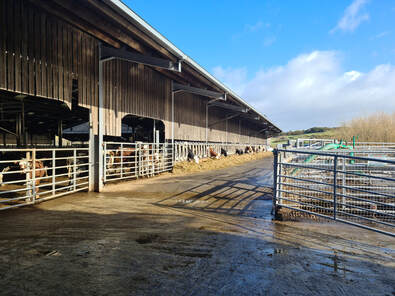 Dispatches from Dumfries and Galloway On departing Glasgow, I took a wee detour to Ayr to acquire some new wellies in anticipation for the next day’s farm visits in Dumfries and Galloway. As Storm Franklin continued to blow through Monday night, I woke up to howling wind and rain early on Tuesday morning. A quick check of the Met Office app reassured me that by 9am there would be calm and sun and so it was. For two of my three Dumfries and Galloway site visits (The Ethical Dairy and SaladBrew), I was joined by Finlay Carson MSP and Convenor of the Rural Affairs, Islands and Natural Environment Committee. Our first stop was the Ethical Dairy (and Cream O’Galloway) where we were met by the owners David and Wilma Finlay. Over 25 years, they have been ploughing their own road from originally being a conventional dairy farm to a fully organic farm and dairy (producing cheese and ice cream) and more recently (into 6th year) an innovative dairy cow/calf system. The calves stay with their mothers for 5-6 months (who are milked just once-a-day after 6-8 weeks), though they separated at night, normally from about 6-8 weeks of age to prepare them for weaning, to help their rumen development and to ensure we get at least a little milk from the cows in the morning. After weaning they milk the cows twice-a-day, as they are still producing a lot of milk for the next couple of months, or so. It then reverts back to once-a-day milking. Whilst this reduces the overall milk yield/cow, the system delivers other benefit requiring little or no additional inputs (apart from grass-based feed produced on the farm), producing very fast growing calves (grow twice as fast as in conventional systems), improving animal welfare and wellbeing (calm, relaxed, comfortable animals), extending the productive life of the dairy cows (on average 9 years) and enhancing working conditions. About 85% of the milk produced is processed on the farm for cheese and ice cream production. Between the farm, dairy (cheese and ice cream), café and retail/management operation, the Ethical Dairy (and Cream O’Galloway) is employing approximately 30 staff, producing high welfare milk, beef calves and lamb, supporting the local economy (tourism and retail), driving up biodiversity and environmental standards across the farm, reducing reliance on expensive inputs (feed; fertilisers; antibiotics) and working collaboratively with public and private supply chains to grow and diversify their business. Our 2nd stop was to Salad Brew, a small hydroponics salad and vegetable farm in Borgue. Rod and Anne Bannatyne set it up in 2017, after being inspired by seeing another operation whilst on holidays in the north of Scotland. Originally a retirement project for Rod they made an initial investment of approx. £26k to build their innovative Kater House (a glass house style construction but with bubblewrap insulation instead of glass). They are growing salad, microgreens, tomatoes, peppers and chillies (to name a few) using a hydroponics system supported by collected rainwater and solar panels for renewable power. Their growing season extends from March to September/November depending on how damp the weather gets in September. They are supplying directly to local customers, one local retail shop and a few food service/hospitality outlets. They have the capacity, and interest, to increase production with supported investment. This funding could go towards installing mini vertical farming equipment or generating the power to heat the kater house. They have encountered challenges with applying for funding and navigating the complex bureaucracy associated. They believe there is great opportunity to grow the network of kater houses/poly tunnels/poly curbs in Dumfries and Galloway in order to grow the quantity and diversity of locally grown vegetables and greens. My 3rd stop was the innovative central food store managed and operated by Dumfries and Galloway Local Authority under the leadership of Alan Mawson. D&G are the only local authority in Scotland to have invested in and to manage a central food stores. All the school food (except fruit and vegetables and milk) are delivered to this central food store and then the Local Authority, using a fleet of vans, mange the distribution and logistics out to all their schools across D&G. This system facilities D&G to have much greater oversight of, and agility with, their school food deliveries, manage the geographical challenges associated with this part of Scotland, engage in innovative logical management (including back hauling) and facilitates forensic processes for checking, and adjusting, how they do school food from a procurement perspective. Across the 3 sites, and through our detailed discussions, the following issues kept cropping up: 1. Workforce and Housing
2. Viability and Sustainability of Dairy Farming
3. Local Economic and Social Development
4. What does a 20 minute neighbourhood look like, and mean for, Rural Communities
5. Public Food Procurement
Dispatches from Glasgow City
Back on the road on Monday 21st Feb, my first stop was Glasgow City (south) to visit Locavore Govanhill (where I met Dorothea “Doro” Warlich), Manswewood High Park Allotments (where I met the Chair of Manswewood High Park Allotments Iain Sutherland, Judy Wilkinson; Jenny Reeves of Glasgow Allotments Forum and Charlotte Keeley from the Glasgow City Food Network). Across both visits, and a wonderful lunch at Locavore Govanhill, I learnt about grassroots food growing across Glasgow (in allotments, community gardens, market gardens), the barriers faced (especially with access to land and the lack of a coordinated, centralised allotment waiting list system) and the passion, creativity and business acumen required from the expanding team at Locavore (and all its various activities – growing, veg boxes, wholesaling, retailing) to drive forward the development and expansion of Locavore within and beyond Glasgow. Interestingly, whilst there were some differences across the sites, the following set of common themes emerged: 1. Access to land Both organisations are passionate about growing locally but a key constraint is access to, and use of, land (including public land). Whilst the Community Empowerment Act and associated local food growing strategies prioritised access to land on paper, little change has happened on ground in Glasgow City. There is continued and even increasing bureaucracy associated with the strategic prioritisation of land for growing and the subsequent development of new, or expansion of existing, food growing spaces. 2. Network of Small Growers (and route to market if required) The importance of community networks was evident with both organisations recognising the vital role played by informal and formal networks in supporting the development, and sharing of, skills, seeds, growing techniques and produce (where appropriate), reducing social isolation, driving greater ethic and cultural integration, supporting community engagement and providing access to urban green space. 3. Short Supply Chains (cutting out the middlemen!) The really interesting part of Locavore’s original and growing business model is how they have, and continue to, work out ways of shortening, and integrating (both vertical and horizontal), their supply chains. Having recently acquired a wholesaling business (and moving it north to Glasgow), they are now able to deal directly with some overseas suppliers (especially for tomatoes; legumes, olives and olive oil) and are developing their own brand range organic canned goods (started with tinned tomatoes and expanding to other canned products). This has allowed them to become more independent in their sourcing and supply of key products for their retail business but also has provided the platform for the development and growth of their wholesale operation which is now supplying other independent retailers (as well as their own 5 stores) and was recently awarded the dry goods tender for East Ayrshire School Food. In addition to their wholesaler operation (vertical integration), Locavore are also working actively to acquire, and develop, more growing land to support their stores and to partner with farmers (and guaranteeing a route to market) interested in, or who have completed, organic conversion. This multipronged approach is allow them to grow sustainably as a business, to build their network of growing spaces and growers/supplier and to support more and more local/regional farmers with their conversion to lower input sustainable and/or organic production. 4. Bureaucratic barriers (impenetrable for many) Both organisations talked about the bureaucratic challenges faced in dealing with the Local Authority and/or in applying for funding support and/or in getting access to land. For many, especially those in the allotment community, the level and type of bureaucracy acts as a real barrier of entry and engagement. Mary’s Tour, Dispatches from Shetland
Joined throughout by Beatrice Wishart (MSP Shetland) and Neil Beattie (Team Leader – Catering and Cleaning, Shetland Island), I visited 4 different businesses:
Across these 4 agri-food and drink businesses we witnessed great entrepreneurial spirt, real resilience, the generation of, and support for, multiple local jobs and the willingness to take personal and professional risks to grow and expand (where possible). There was also a real and deep connection to place, a commitment to, and innovation in how they, supply and deliver to public and/or private sector customers (role of the local public bus service in delivery suppliers to schools and businesses) and the perfect storm which threatens their viability and capacity to continue to generate jobs and produce, process and serve local Shetland food and drink. We learnt how public food (in particular school food) is transforming in Shetland in terms of standardised school menus, local procurement, workforce pay and development, investment in food in schools (polytunnels and school gardens) and the recent award of Food for Life Bronze accreditation. We also learnt how the tourism sector is growing and offers real potential for small food and drink businesses but that more needs to be done to join up the support and facilitate creative partnership working (including between public and private sector). Across the sites visited, a shared set of common challenges emerged namely:
Whilst Storm Dudley and Eunice have played havoc with my original plans to head straight from Shetland to the outer Hebrides (rescheduled to late March), my grand tour of Scotland continues with trips next week to farms, a vegetable producer, community initiatives, independent local food retailers, and a central public kitchen with stops in Glasgow (Mon 21st), Dumfries and Galloway (Tues 22nd), Argyll and Bute (24th) and Islay (25th). |
AuthorProfessor Mary Brennan - Chair of the Scottish Food Coalition ArchivesCategories
All
|
Proudly powered by Weebly

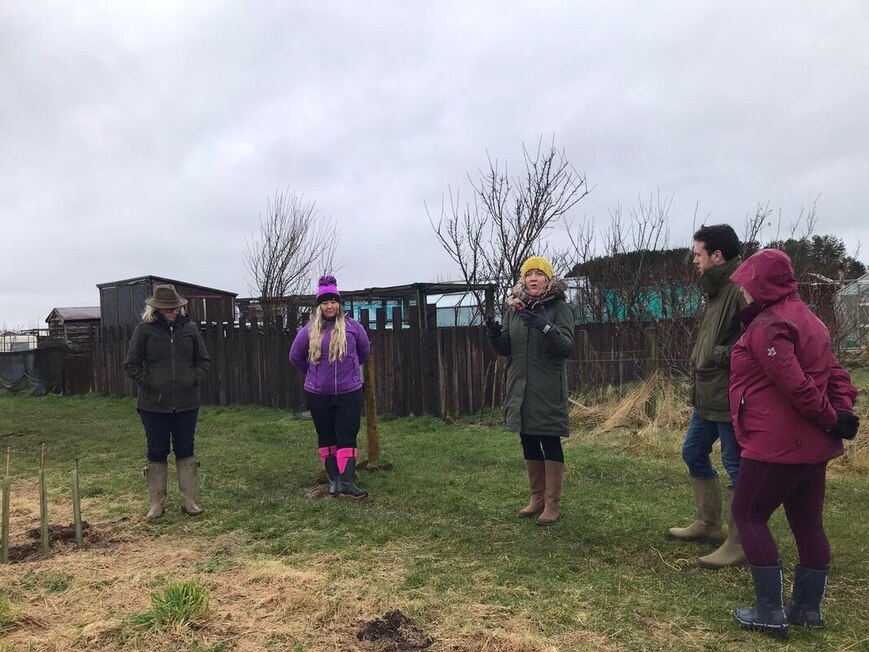
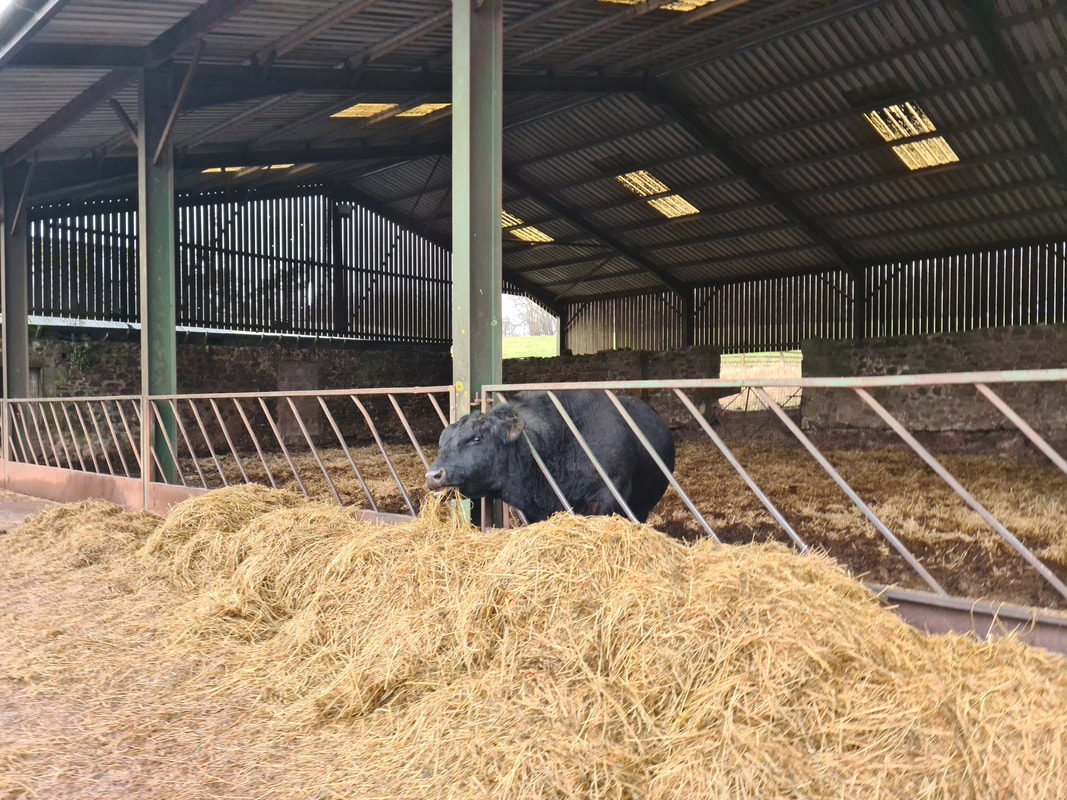
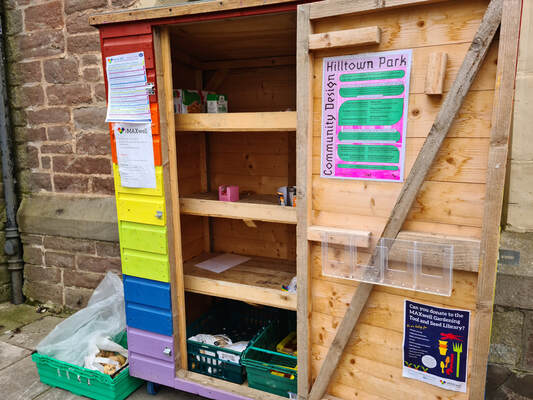
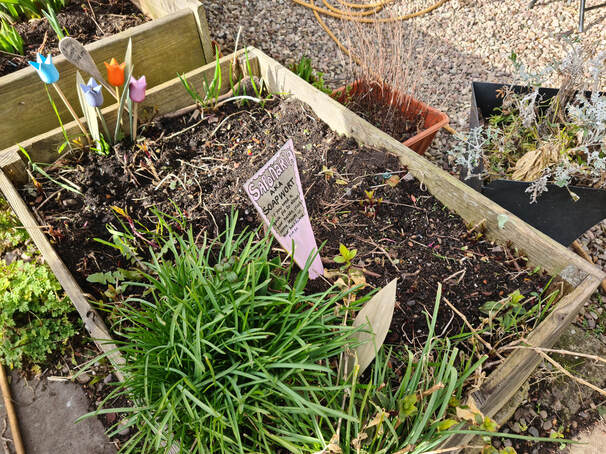
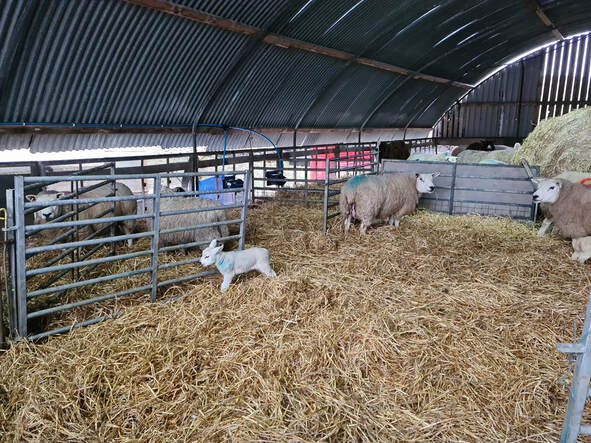
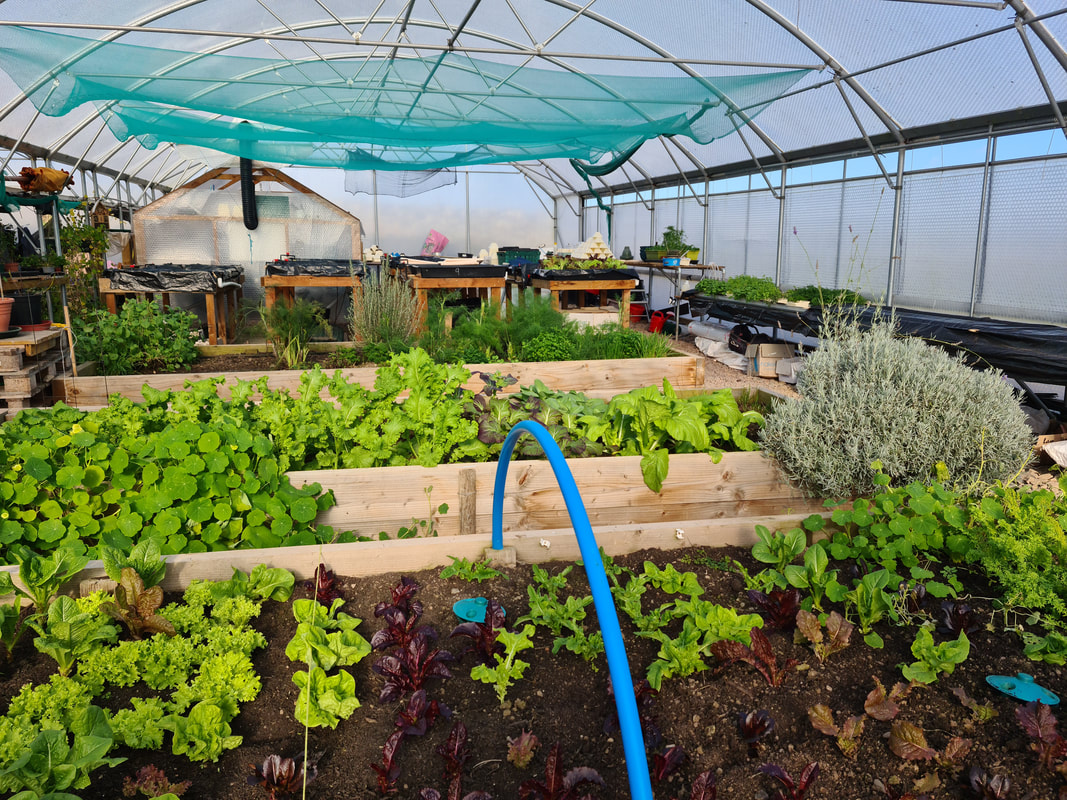
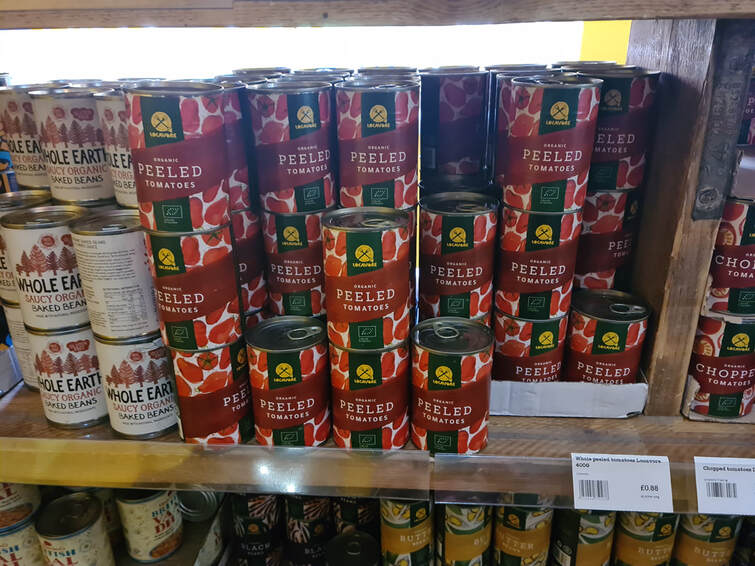
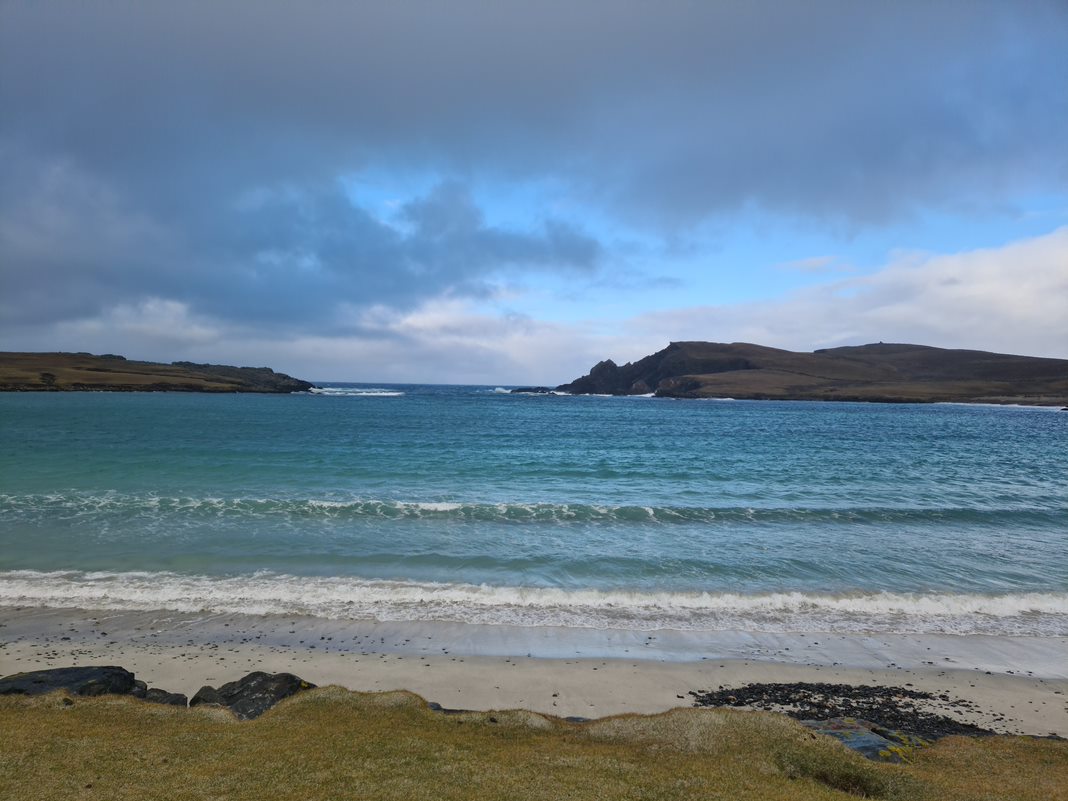
 RSS Feed
RSS Feed